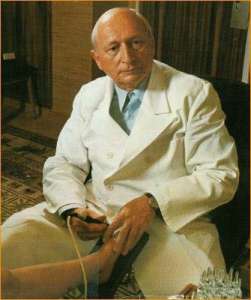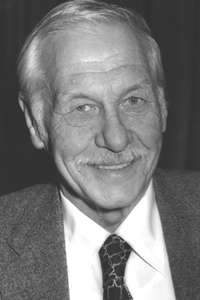Why Is It Called “Biological” Dentistry Anyway?
From the office blog of IABDM co-founder Dr. Gary M. Verigin, used with permission
What is an IABDM Certified Biological Dental Hygienist?
Defining the Specific Concept that Originated from the works of Bioregulatory Medicine
Over the years, the word “Biological” has become a general term relating to practices that are beneficial to the body. As the ORIGINAL organization that took the practice of Biological Medicine from Germany and adapted it to the practice of dentistry as explained above, the International Academy of Biological Dentistry and Medicine believes that defining what a Certified Biological Dental Hygienist actually has learned and is practicing, educating, and following for the benefit of their patients and the planet. The International Academy of Biological Dentistry and Medicine (IABDM) plays a pivotal role in certifying biological dental hygienists, professionals who adopt a holistic approach to oral health. Rooted in the principles of Biological Regulatory Medicine, these hygienists emphasize the body’s innate capacity for self-regulation. A Certified Biological Dental Hygienist delves into the underlying causes of oral diseases, recognizing the profound interconnections between dental health, systemic conditions, and overall well-being. Through specialized training in areas such as Traditional Chinese Medicine, electrodermal assessments, and nutritional counseling, they provide comprehensive care that transcends conventional dentistry.
The following is the encompassing definition of an IABDM Certified Biological Dental Hygienist:
The International Academy of Biological Dentistry and Medicine (IABDM) certifies biological dental hygienists. Biological dentistry and dental hygiene are modeled after the concept of Biological Regulatory Medicine and the body’s potential for autoregulatory capacity. A Certified Biological Dental Hygienist is a professional who focuses on the root causes of oral disease while considering the effects of dental materials, techniques, and procedures on the complex relationship between the oral and systemic link within the context of the whole person. Certified Biological Dental Hygienists have taken additional course work in understanding Traditional Chinese Medicine and electrodermal assessments, homeopathy, energy medicine, biological terrain assessment, sleep and airway medicine, nutrition, allergies, and food sensitivities, toxicology and detoxification support, understanding basic lab work (LDL, C-reactive protein, HgA1C, D3 levels), use of genetic and salivary testing for periodontal therapies, muscle and joint physiology related to myofascial release and myofunctional therapy, and surgical and non-surgical treatment of bone infections.
The practice of biological dental hygiene includes identifying interruptions in the human regulatory systems that can present in the oral cavity, head, and neck, and during the dental hygiene assessment of general health status through regular and thorough review of the medical and dental history. A biological dental hygienist’s goal is to develop a treatment plan that restores and sustains whole body health by:
1) Promoting lifestyle, health, and preventive dental hygiene practices.
2) Considering an individual’s unique biochemistry, energetic profile, health status, needs, values, and goals. A biological dental hygienist values the patient relationship.
3) Relieving or reducing the body’s burden of infection, inflammation, and/or toxic materials.
4) Providing documentation of possible electromagnetic disturbances, malocclusion, musculoskeletal pain, myofunctional and tethered oral tissues (TOTS).
5) Educating patients on the impact of dysregulation across body systems on oral health.
Biological dental hygienists refer to and maintain an interprofessional practice with appropriate healthcare providers when necessary to determine the root of dysregulation affecting the oral cavity. Referrals may include but are not limited to biological dentists, naturopaths, integrative physicians, functional medical practitioners, gastroenterologists, endocrinologists, osteopaths, and other healthcare professionals.
Certified Biological Dental Hygienist can practice within all seven professional roles of the dental hygienist (corporate, researcher, educator, public health, administrator, entrepreneur, and clinician), and practice independently or under supervision depending on country or state law. They provide ethical, evidence-based care, and consider diagnostics and biocompatible materials conducive to a healthy terrain while working within their scope of practice.
The IABDM is proud to empower our Certified Biological Dental Hygienists to be an integral part of every patients’ care by not only focusing on the mouth but as healthcare providers alongside their counterparts in a patients overall health and wellness.

 This meeting featured Dr. Reinhold Voll demonstrating his groundbreaking method of electroacupuncture, and this inspired the two dentists to learn more about it. They next enrolled in a series on the Fundamentals of Electroacupuncture According to Voll (EAV), taught by German naturopath Andreas Marx and designed by Walter Sturm, founder of the
This meeting featured Dr. Reinhold Voll demonstrating his groundbreaking method of electroacupuncture, and this inspired the two dentists to learn more about it. They next enrolled in a series on the Fundamentals of Electroacupuncture According to Voll (EAV), taught by German naturopath Andreas Marx and designed by Walter Sturm, founder of the  Properly understood, German Biological Medicine is rooted in the work of Hans Heinrich Reckeweg, the Father of Homotoxicology. In the mid-20th century, Reckeweg showed how illness is progressive. He demonstrated that any illness develops predictably across six stages. He also showed that the process can be reversed. Homeopathic treatment, better nutrition and other measures can open the channels of elimination. This helps the body to detoxify and the terrain to return to a state of health.
Properly understood, German Biological Medicine is rooted in the work of Hans Heinrich Reckeweg, the Father of Homotoxicology. In the mid-20th century, Reckeweg showed how illness is progressive. He demonstrated that any illness develops predictably across six stages. He also showed that the process can be reversed. Homeopathic treatment, better nutrition and other measures can open the channels of elimination. This helps the body to detoxify and the terrain to return to a state of health.